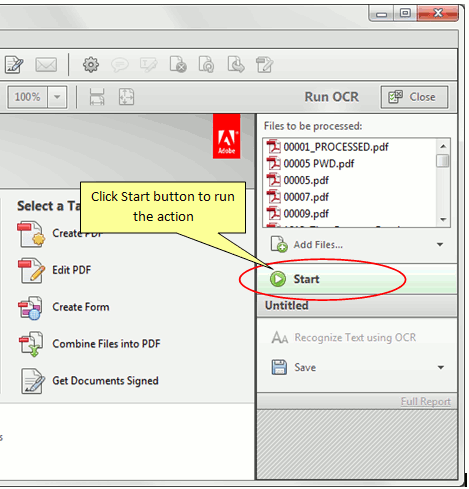The Adobe Acrobat Professional XI offers a powerful way for automating repetitive tasks on the number of documents at once. This functionality is called “Action Wizard”. It is also known as “Batch Processing” in previous versions of Adobe Acrobat (prior to version X). It allows to define a series of PDF document processing commands (called "actions") with specific settings and in a specific order. Actions can be applied to one or more files, or to an entire content of the folder. Once an action is created, it can be executed either manually from the toolbar or from a command-line batch file using AutoBatch plug-in.
The instructions below explain how to start using "Action Wizard" and define your own PDF processing "action". This example shows how to create an action that executes OCR (Optical character recognition) batch command on a folder of PDF files.
- Step 1 - Start Action Wizard
- Select "File > Action Wizard" from the menu to access and manage the actions. Alternatively, open "Action Wizard" toolbar by expanding "Tools" panel located on the right-hand side of the Acrobat window. If you do not see "Action Wizard" in the list of the available toolbars, click on a small icon in the upper-right corner of the "Tools" panel and select "Action Wizard" from a pull down list.
-
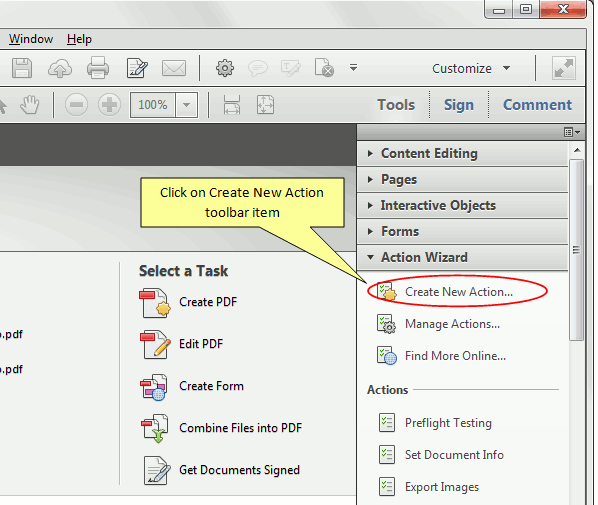
- Step 2 - Choose Tool/Command to Add
- The "Create New Action" dialog appears on the screen. Now, add batch commands
to the action and configure what documents to use as the input. Click on command category
to see a list of available commands.
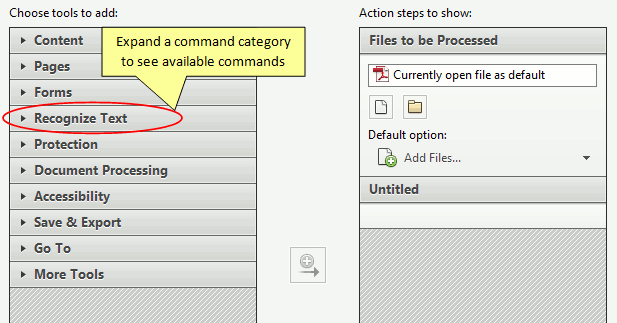
- Step 3 - Add Command
- Click on command ("Recognize Text using OCR" in this example) and then press + button
to add this command to the action steps:
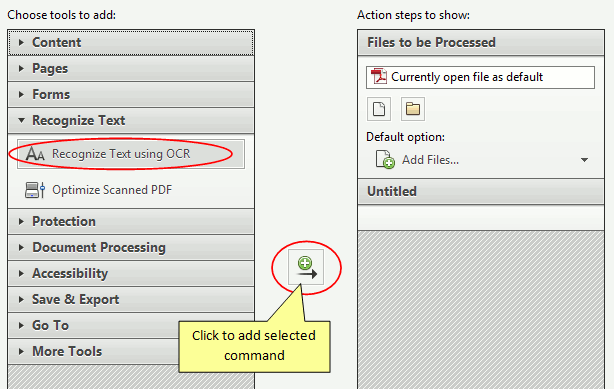
- Step 4
- Now the selected command will be added to the list of processing steps. Uncheck "Prompt
User" option (otherwise this command would always display a settings dialog
when executed) and press "Specify Settings" button:
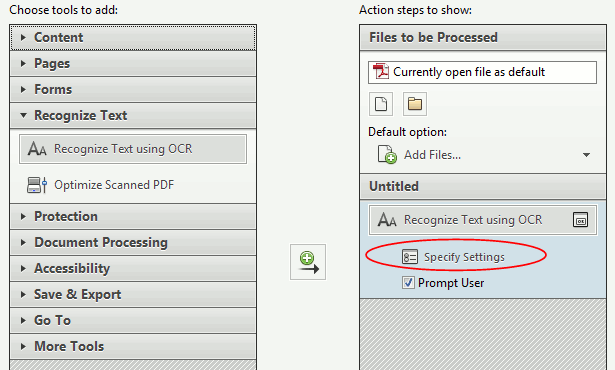
- Step 5 - Configure the Tool/Command
- Configure all settings
as required and press OK button. These settings will be used when command is executed.
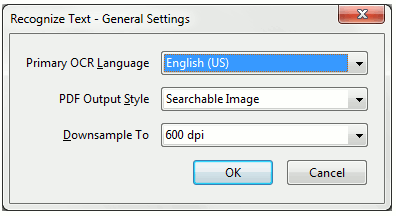
- Step 6 - Add Save Command
- Now add "Save" command to save processed file(s) into the same or a different location.
Expand "Save & Export" category and select "Save" command. Press + button to
add it to the list of steps:
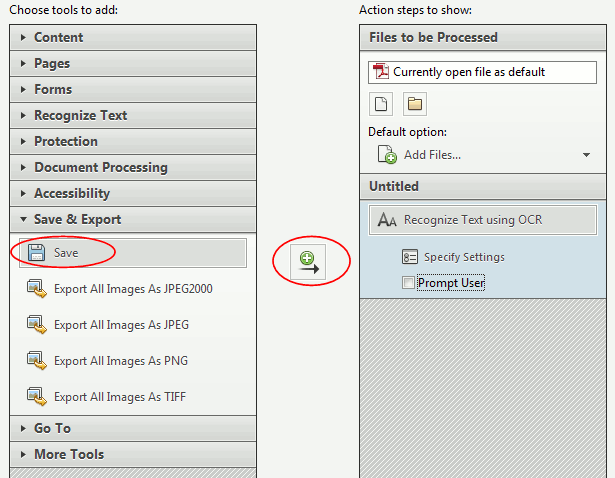
- Step 7 - Configure Save Command
- Click on the Save menu and select the way you want to save files ("Save", "Save
As", "Save To Local Folder"). Press "Specify Settings" button to enter options:
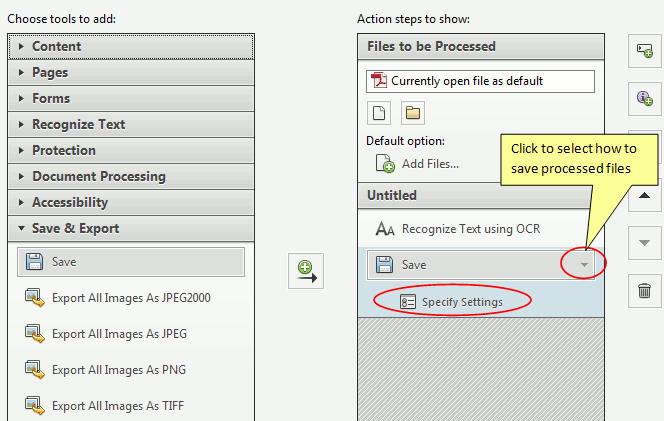
- Step 8 - Specify File Naming
- Specify filenaming options and processing parameters ("Embed Index" or "PDF Optimizer")
in "Output Options" dialog. Press OK button when done.
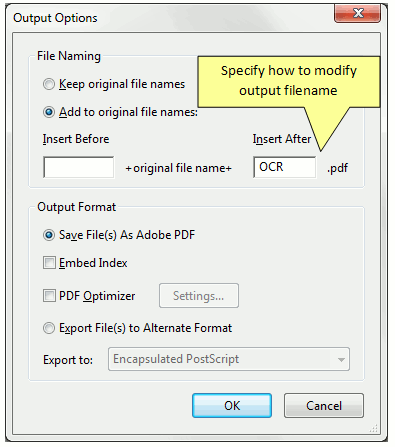
- Step 9 - Select Input Files/Folders To Process
- Now select input files/folders to run this action on. Press either file or folder
icon in the "Files to be Processed" section and select an input files/folder. Repeat this procedure multiple times to add more than one file/folder.
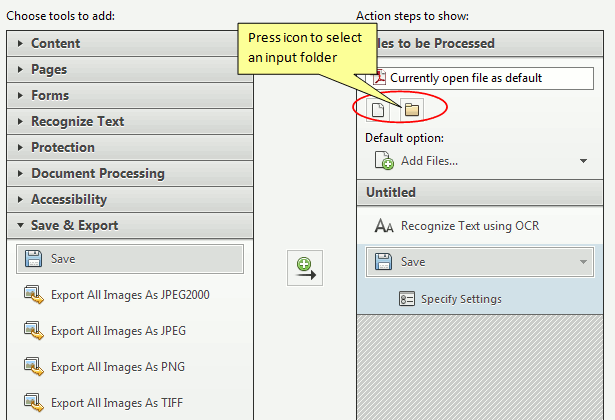
- Step 10 - Save Action
- Now we have completed configuring the command. We have specified input files/folders,
commands to use and where and how to save the results. Press "Save" button to save
these settings as a named "action":
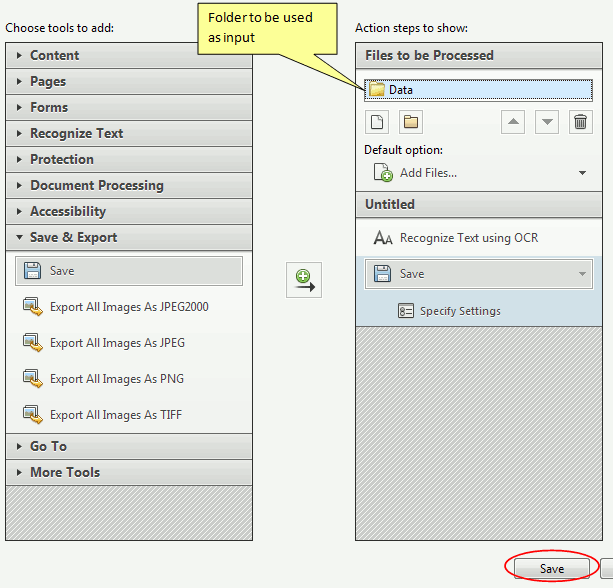
- Step 11 - Add Name and Description
- Type desired "Action Name" and description into "Save Actions" dialog. Press "Save"
button to save the action.
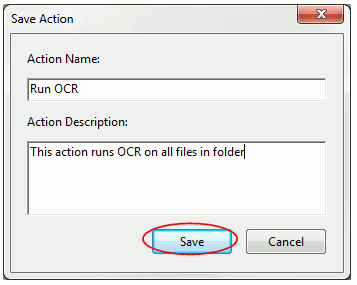
- Step 12 - Selecting Action For Execution
- Now you should see this new action added to both the "Action Wizard" toolbar and
to "File > Action Wizard" menu. Click on
the action in the "Actions" list to execute it. If you have selected a folder as input and there are a lot of files
in it, then it takes quite some time for Adobe Acrobat to display a "Start" button
for launching the action (see next step).
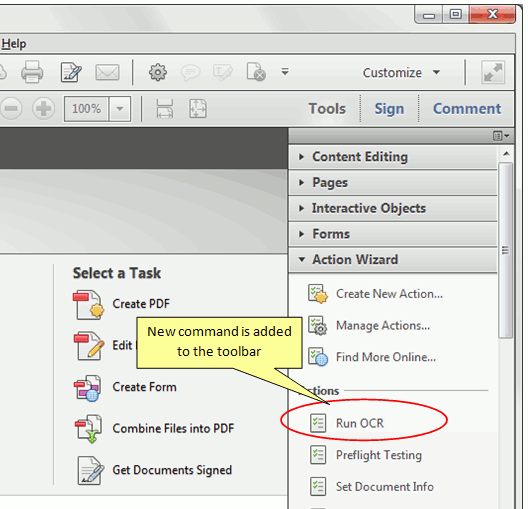
- Step 13 - Starting the Action
- Press "Start" button to execute the action.
